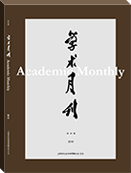Minimum Wage Regulation and Chinese Enterprises
Abstract: As a powerful policy to maneuver the labor market, minimum wage regulation inevitably influences business activities. Based on the firm-level panel data covering all above-designated-sized industrial companies from 1998 to 2007, together with the district or county level minimum wages data, this paper utilizes a survival analysis to examine the impact of minimum wage regulation on business exit in China. The results show that minimum wage increases labor costs, forces companies to withdraw faster, and affects the survival chances through the compression of enterprise human-capital investment rather than that of fixed-capital expansion. A further discussion finds that, compared with non-union enterprises, firms with unions can better transmit voices from workers, reduce internal cost, and decrease the likelihood of exit. Among companies with various sizes and different types of ownership, minimum wage regulation has different effects on the survival rate. Further research indicates that minimum wage regulation partly plays a cleansing role, and, while forcing inefficient enterprises to exit, saves more market space and creates opportunities for efficient ones. This study not only objectively assesses the impact of the minimum wage regulation on the survival of industrial enterprises, but also provides important insights for Chinese enterprises to actively respond to labor market policies and achieve vitality construction



 沪公网安备 31010102003103号
沪公网安备 31010102003103号 DownLoad:
DownLoad: